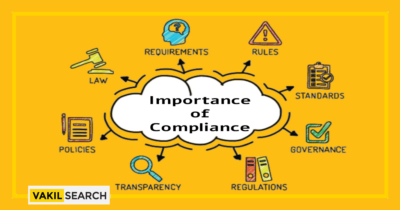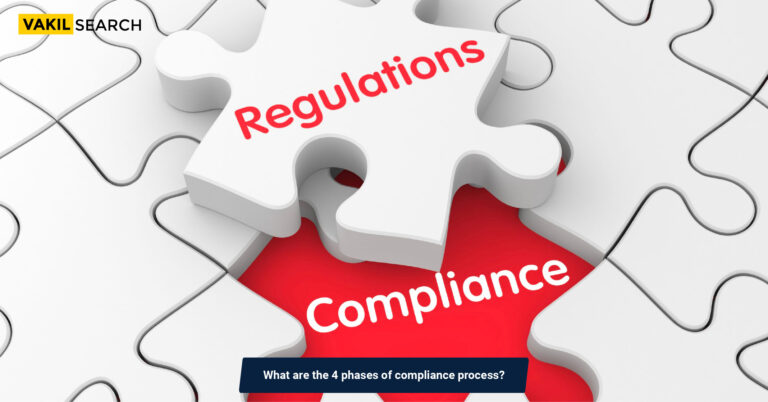Navigate the intricacies of global financial and tax regulations, where local expertise guides compliance amidst evolving rules. Witness how streamlined digital tools revolutionise expense management.
Overview of Accounting Compliance and Handling Expenses
Accounting compliance refers to the practice of following the accounting standards and regulations set forth by the government or relevant accounting bodies. This includes maintaining accurate financial records, preparing financial statements, and adhering to tax regulations.
One aspect of accounting compliance is handling business expenses. It is essential to keep track of all business expenses, including receipts and invoices, to ensure accurate reporting and avoid any issues with the tax authorities.
To handle business expenses, it is crucial to separate personal and business expenses to avoid confusion or complications. Keeping track of all business expenses by recording them in a spreadsheet or accounting software and saving receipts and invoices related to business expenses is essential. Categorizing expenses to make it easier to track and report them, reconciling bank and credit card statements with accounting records, and consulting with an accountant are also crucial steps to ensure accounting services
Accounting Compliance
Accounting compliance stands as a cornerstone of organisational integrity and financial stability. With its focus on precise record-keeping and adherence to regulations, accounting compliance ensures that financial transactions are handled with transparency and accuracy, fostering trust among stakeholders and mitigating the risk of financial impropriety.
Central to accounting compliance are meticulous processes that guide the treatment of financial transactions. These processes not only facilitate accurate reporting but also ensure that financial statements meet local regulations. A robust accounting compliance framework acts as a safeguard against errors and misconduct, promoting the responsible management of an organisation’s financial health.
Two globally recognised accounting standards play a pivotal role in shaping accounting compliance practices:
Generally Accepted Accounting Principles (GAAP):
GAAP, a rule-based framework, governs the accounting practices of businesses based in the United States. It delineates a comprehensive set of standards and procedures that dictate how financial statements should be prepared. For businesses issuing financial statements and publicly trading companies, GAAP encompasses ten fundamental accounting principles. Additionally, four guidelines underscore consistency and accuracy, helping maintain the reliability of financial reporting. By adhering to GAAP, organisations uphold transparency and foster uniformity in their financial disclosures.
International Financial Reporting Standards (IFRS):
IFRS, a collaborative effort of the International Accounting Standards Board (IASB) and the International Sustainability Standards Board (ISSB), outlines the reporting obligations of private companies. This standard specifies how specific transactions and events must be presented in financial statements. Its global significance is underscored by its adoption within the European Union and by more than 100 countries worldwide. Embracing IFRS bolsters cross-border comparability and enhances transparency, fortifying investor confidence on a global scale.
In a landscape where precision and accuracy are paramount, accounting compliance serves as a beacon guiding financial transparency and responsible stewardship. Through the adoption of internationally recognised standards like GAAP and IFRS, organisations solidify their commitment to accurate record-keeping, bolstering their reputation and contributing to the integrity of financial markets. As the complexities of the business world evolve, a steadfast commitment to accounting compliance remains an essential foundation for sustainable growth and ethical financial management.
Benefits of Accounting Compliance
In the intricate realm of business, compliance serves as both a shield against risks and a catalyst for growth. Accounting compliance, comprising a dual approach of understanding regulatory imperatives and implementing strategic processes, brings forth a spectrum of benefits that transcend mere adherence. Rather than a burdensome chore, maintaining compliance with accounting standards and governmental regulations offers a treasure trove of advantages for businesses.
Robust Financial Tracking and Reporting:
At its core, compliance demands the establishment of a dependable and resilient system for financial monitoring and reporting. By integrating compliance-driven practices, businesses create a structured framework that captures and records financial data accurately. This not only ensures the precision of financial statements but also empowers organisations to generate insightful reports that aid in informed decision-making. A well-structured financial tracking system paves the way for efficient resource allocation and strategic planning.
Enhanced Transparency and Early Detection:
Compliance cultivates a culture of transparency that unveils potential financial irregularities at their inception. With stringent compliance mechanisms in place, discrepancies and anomalies are more likely to be detected early on. This early detection serves as an invaluable tool in averting financial crises and fraudulent activities. Transparent financial practices build trust among stakeholders, instilling confidence in the integrity of the organisation’s operations.
Mitigation of Noncompliance Penalties:
The right processes and protocols act as a formidable shield against the financial repercussions of noncompliance. By meticulously aligning with accounting standards and regulations, businesses mitigate the risk of incurring penalties that could erode financial resources and tarnish reputation. Effective compliance measures create a resilient armour that safeguards against potential financial setbacks and legal entanglements.
Prevention of Legal Entanglements:
Ensuring compliance in accounting acts as a preemptive measure against potential legal entanglements. By adhering to regulatory requirements, businesses avoid the pitfalls of legal disputes and liabilities that could arise from noncompliance. A proactive approach to compliance not only safeguards the organisation’s financial standing but also preserves its credibility in the eyes of both customers and competitors.
Financial and Tax Regulations
While globally recognised accounting principles provide a foundation for standardised practices, the intricate interplay of local rules and industry-specific requirements necessitates the guidance of local experts to ensure precise compliance with reporting regulations within distinct countries or regions.
Amid reporting demands, finance teams grapple with a significant hurdle: aligning with prevailing tax regulations. This is particularly pertinent in expense reporting, where countries like the UK define the boundaries between business expenses and taxable benefits. The distinction between necessities and non-essential perks carries tax implications, making vigilance crucial.
For finance teams, the dynamic landscape of accounting rules across nations poses challenges, mandating vigilance over the timing of changes – frequently coinciding with the start of the year, though not exclusively.
In this intricate web of financial and tax regulations, local expertise is the lodestar, guiding businesses through compliance complexities while empowering finance teams to navigate evolving standards with acumen.
Handling Expenses
Initiating expense management often involves manual methods for businesses. Gradually, unique systems evolve, where expenses are logged in spreadsheets and then manually inputted into bookkeeping systems. Despite its familiarity, this approach lacks scalability and efficiency. Both expense reporters and finance teams encounter delays and inaccuracies, hampering reimbursement processes.
The intricacies of expense handling, especially discerning taxable items, deductibles, mileage, and per diem, amplify complexities. The solution lies in transitioning from these labor-intensive practices. Embracing streamlined digital tools not only expedites expense reporting but ensures accuracy, scalability, and a more user-friendly experience. In a dynamic business landscape, such efficiency becomes indispensable for growth and operational harmony.
Best Practice
Amidst the global diversity of accounting and tax frameworks, a core set of best practices emerges when it comes to navigating the intricacies of handling and reporting expenses. Regardless of location, these principles empower businesses to achieve compliant and efficient expense management.
Clear Policy Framework:
Offering a transparent and accessible expense policy minimises ambiguity regarding claim limits. This proactive approach provides employees with a roadmap, ensuring a shared understanding of permissible expenses.
Defining Acceptability:
Defining acceptable claims sets a clear standard, paralleled by outlining unacceptable claims. Furnishing a roster of approved suppliers streamlines the process and clarifies choices.
Streamlining Relevance:
Optimising the claims process involves requesting only essential information for processing claims. Simplifying receipt and report submission enhances efficiency.
Streamlined Accountability:
Implementing a straightforward approvals process accessible from any connected device enhances accountability. This nimble approach expedites decision-making and reduces bottlenecks.
Efficient Punctuality:
Creating an efficient reimbursement process eliminates delays, ensuring swift payments. This enhances employee satisfaction, fostering a positive experience.
Embracing these universal best practices in expense management transcends geographic borders, cultivating a compliant, efficient, and employee-centric approach. As businesses navigate the complexities of global finance, these principles stand as beacons of guidance toward financial prowess.
Objectives of Accounting Compliance And Handling Business Expenses
The objectives of accounting compliance and handling business expenses are:
Legal Compliance: The primary objective of accounting compliance is to adhere to relevant laws and regulations related to accounting and taxation. Handling business expenses in accordance with accounting standards helps businesses avoid legal issues and penalties.
Accurate Reporting: Maintaining accurate financial records, preparing financial statements, and following accounting standards ensures accurate reporting of a company’s financial performance. This objective helps businesses make informed business decisions and attract investors and stakeholders.
Financial Control: Handling business expenses in a structured manner and reconciling accounts enables businesses to have better financial control. This helps in budgeting, forecasting, and identifying areas of inefficiency or overspending.
Fraud Prevention: Proper handling of business expenses helps in preventing fraudulent activities by identifying irregularities in financial transactions and ensuring accountability.
Tax Benefits: Proper handling of business expenses can result in tax benefits for businesses. Accurately reported expenses can be claimed as deductions, reducing the overall tax liability.
Simplifying Expense Management
In the intricate realm of accounting and finance, a beacon of simplicity and efficiency emerges. Regardless of the tools you use, an agnostic expense management solution seamlessly integrates with your setup, revealing user-friendliness and streamlined processes.
From the onset, complexities fade. The choreography of expense management, once daunting, becomes effortless. Farewell to manual updates on evolving expense regulations. An automated compass incorporates regulatory changes.
Venture beyond tradition, embrace a compass through regulatory changes, unburdening you from relentless regulation monitoring for impeccable compliance.
This solution goes beyond expense tracking, embracing universality, gracefully handling expenses, mileage, and per diem, harmonising with your business’s dynamics. Empowerment dissolves regulatory burdens, allowing focus on growth and vitality.
Conclusion
In the culmination of this exploration, we unravel the essence of accounting compliance, its transformative benefits, intricate financial regulations, and streamlined expense handling.
Accounting compliance champions transparency, bolstering trust and ethical financial management. Its merits extend to financial tracking, transparency, and early detection, while GAAP and IFRS establish global reporting consistency.
Navigating financial and tax regulations demands local expertise. Streamlining expenses through digital tools enhances scalability and efficiency.
With best practices as guiding lights, businesses ensure compliance, efficiency, and employee satisfaction.
FAQs
What type of expense is compliance?Compliance expenses encompass all the costs a company needs to cover to ensure its adherence to industry regulations. |
What are accounting compliance services?Accounting compliance involves verifying that a business’s financial reporting aligns with prevailing laws and regulations. To guarantee this accuracy, well-defined processes and protocols for recording and validating financial transactions are crucial. |
What is covered under compliance?Compliance entails adhering to rules and regulations established by various legal authorities. While it can be challenging to abide by every law, failing to do so might lead to missing out on potential opportunities. |
Who is responsible for compliance?At the core of the management team, the Chief Compliance Officer holds a pivotal role in overseeing and guaranteeing adherence to laws, regulations, policies, and procedures within the organisation. |
Is audit part of compliance?Compliance and audit, although related, serve distinct purposes. While audits uncover deficiencies in policies and procedures, they might not ensure the organisation’s adherence to legal obligations. |
Read More,










